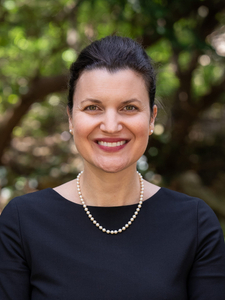Following the rhythms of the church calendar provides the blessed opportunity to engage with the significant events that herald our Christian faith. It is now December, and here we are again, preparing to worship and remember the beginning of Christ’s earthly life. It’s a new opportunity for us to hear, ponder, and marvel at the miracle of the incarnation.
God almighty, Maker of heaven and earth, came . . . as a newborn baby.
The Son of God, the second person of the inscrutable Trinity, took on human flesh and came . . . to live among us.
It is the wonder of all wonders. Let’s ponder it again.
The celebration of Christmas will come after a season of Advent. The word advent comes from the Latin ad-venire, which means “come to.” It’s a season of anticipation, of becoming aware of our longings for someone to “come to” us, for someone—for Jesus— to “arrive.” I am drawn to observing Advent because it invites us to experience this longing. Life goes by so fast, but Advent slows us down. It reminds us that we feel longing because something is wrong. And as we consider the human condition, our own hearts, and the deep injustices in our world, of course we know something is wrong.
But maybe it is not enough to describe it that way. If a glass is shattered into thousands of pieces, you wouldn’t say something is wrong with the glass. You’d say it’s broken beyond repair. And that’s what it’s really like for us, isn’t it? Maybe I am drawn to the longing of Advent because it gives us the courage to be honest that the glass isn’t whole. It gives us the courage to say that we are shattered people. And as we’re honest with ourselves about the actual level of ruination that we live with, we can finally arrive at the bottom-line truth of our situation: we cannot help ourselves. The glass cannot be pieced back together. This kind of honesty hurts, yet it’s deeply good. It’s good because you become open to seeking help outside of yourself. And because you know you can’t help yourself, you start to look elsewhere.
The incarnation bids us to look no further. In the midst of our pain, shatteredness, and sinfulness, Christ comes. This is a cosmic breakthrough. Heaven breaks into earth. Heaven arrives. If you thought God did not care, if you thought he must have forgotten about us because of how vile the world is, if you thought there is no resolution to the myriad of problems that plague us, then allow the heart of the Christmas message to break through. It is this:
For God so loved the world that he sent his one and only Son. (John 3:16)
This revelation is our new bottom line. This earth with all its threats and dangers? Christ did not despise it but entered into it. The people all around you with all their faults and failings? God loves them. And you—with all your offenses and wrongdoings? He loves you. Knowing that he loves us is the breakthrough that starts to repair us all. God so loves us that he sent his Son to us. As the church calendar cycles onward, we’ll get to ponder other parts of Christ’s story. To learn that God truly has something better ahead—beyond what we could have even hoped. But for Christmas, linger here: God broke through. He did not forget us. He did not forsake us. In our helpless estate, he did not turn away from us. Instead, he came to us.
This Christmas is a new opportunity for you to remember these wonders. To treasure them in your heart. To claim the utter personalness of the Christmas story for yourself—God broke through for you. Because he loves you.




